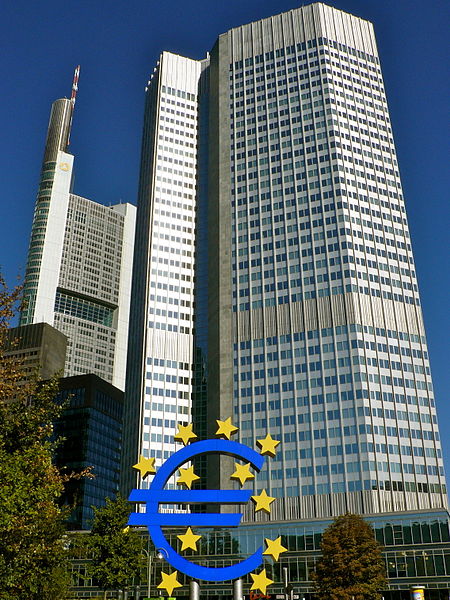By Tom Lines for New Internationalist. Reproduced with permission.
A few times a year – we don’t know exactly how often – 52 people meet in a room in London. We think they meet in the Guildhall. While most ordinary people know nothing about these meetings, the British government is fully up to speed. The people who attend these meetings work for organizations from China, France, Germany, Japan, Spain, Switzerland and the US as well as Britain. We can be sure that they are very well paid.
Collectively, they are known as the Council of the International Regulatory Strategy Group (IRSG). And they matter a lot.
In its promotional materials, the IRSG describes itself as ‘practitioner-led’. It is made up of financial practitioners, you see. Its purpose is ‘to contribute to the shaping of the international regulatory regime, at global, regional and national levels’. In reality, it’s a lobbying organization.
But here’s the odd thing. Most of these people do work in finance – for the likes of Goldman Sachs, Bank of China, Crédit Suisse, HSBC, the London Stock Exchange and Blackstone private equity fund. But the people in charge of the ISRG have public-sector backgrounds.
The IRSG is chaired by Rachel Lomax, a former Deputy Governor of the Bank of England. Her deputy is Mark Boleat, an employee of the City of London Corporation (CLC). The Executive Board is chaired by Chris Cummings, who doubles up at TheCityUK, which operates as the CLC’s Public Relations outfit.
Odder still, the CLC and TheCityUK pay the wages of IRSG’s five staff members, who organize annual receptions in London and Brussels.
But let’s get this straight. The IRSG lives up to its name. It is an international group that considers strategies for financial regulation and sends its recommendations to whomsoever it pleases – the European Commission, House of Commons, Securities and Exchanges Commission (in the US)… you name it!
And by running this set-up, the CLC is fulfilling its democratic mandate. I have no doubt that all the bodies with people on the IRSG Council have corporate votes in City of London elections. The bosses of finance organizations from anywhere in the world can vote if they have big enough offices in the City. And this is how the IRSG shapes strategy on regulation on behalf of the financial sector worldwide.
But here’s an even odder thing. I haven’t mentioned the seven participants in the IRSG Council yet. They are observers from the Treasury, Foreign Office, Business Department, Bank of England and all three of Britain’s financial regulatory authorities.
That’s right, the government sits in on meetings in which the world’s financiers determine what strategy they want for regulations that affect them.
They are all in it together!
A big issue for regulations this year is the proposed EU-US trade agreement, formally known as the Transatlantic Trade and Investment Partnership (TTIP).
The European Commission wants to have financial regulations included in the TTIP. So does Britain’s Deputy Prime Minister Nick Clegg. But the Americans don’t want it there. Jack Lew, US Treasury Secretary, says, ‘We will not allow these agreements to serve as an opportunity to water down domestic financial regulatory standards’.
Critics of the TTIP say that regulations will be weakened across the board if the TTIP goes through.
Under TTIP, regulations are expected to be ‘compatible’ or to ‘converge’, or at least to be ‘mutually recognized’. Take GM crops as an example. That can only mean one thing: acceding to demands from Monsanto and other corporations to import GM-based food into Europe and cultivate GM crops. The US government will not agree to anything less.
In the financial sector it would mean the acceptance on either side of regulations which their own political authorities had neither considered nor approved. A procedure called Investor-State Dispute Settlement (ISDS) could also have the perverse effect that banks which were fined billions of dollars for violating weak regulations that existed before 2008 could then sue for loss of profits due to new, stronger regulations introduced after the crash.
Car manufacturers demand ‘mutual recognition of existing regulations’ for motor vehicles. This would permit the import of US vehicles which do not satisfy safety and environmental norms determined by the EU.
And so it goes on, in sector after sector of the economy. Both sides want this stitched up by Christmas 2014 and then ratified without fuss.
Last month the Commission circulated (but did not publish – nothing gets published but occasionally it comes out in leaks) a proposal for what it calls ‘regulatory coherence’. This would set up permanent consultations with business on both sides of the Atlantic to negotiate new regulations before they are ever put to the public.
Haven’t I heard of something similar before? Ah yes, that’s how the IRSG operates. Isn’t it funny when the EU starts to imitate the way things are done in Britain?










